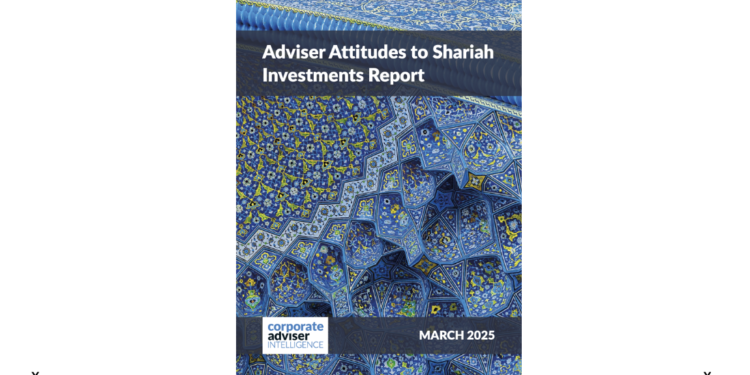Much of the UK pensions sector has a blind spot with regard to the Shariah status of annuities meaning Muslim retirees are unwittingly buying products that are not suitable for them, a Corporate Adviser report has found.
The report into adviser attitudes to Shariah investments concludes that conventional annuities are not Shariah-compliant, yet industry awareness of this is very low, and Muslim retirees may be purchasing these unsuitable products without knowing their status.
Provider material on the Shariah status of annuities is limited and the Money and Pensions Service’s Moneyhelper. co.uk annuity comparision tool does not mention this as a suitability factor, despite asking questions relating to age, marital status, health, alcohol and smoking and indexation.
A spokesperson for the Money and Pensions Service says: “The MoneyHelper service provides guidance and so we don’t recommend specific products.”
The only Shariah products mentioned on the Moneyhelper website are Shariah investments and mortgages. As a result Muslims may be buying annuities without knowing their status in regard to Shariah law.
Several industry bodies contacted for this research struggled to confirm whether annuities offered in the UK are Shariah compliant.
Knowledge of Shariah investments is generally low across consultants and advisers although there are some firms with very high levels of expertise, the report finds.
It finds Shariah options are often not promoted to staff or prominent in user journeys, potentially excluding Muslim employees from pensions. income drawdown can offer a Shariah-compliant retirement option for members, although many schemes have yet to facilitate this
Advisers say Shariah investment options offer a significant opportunity to build trust with a community of workers that has had relatively low participation with pensions. But while availability of Shariah investment options with DC schemes is increasing, but choice remains limited, with most funds being passive, index-tracking options. The narrower universe of investment options within Shariah investment is a key concern of advisers particularly as this leads to concentration risks.
The report, published in partnership with Aviva, also finds existing communication strategies often fail to attempt to understand whether Muslim employees’ beliefs are such that they want to invest in Shariah options, raising questions on how far employers’ duty to explore religion or beliefs when presenting pensions extends.
Corporate Adviser reporter and report co-author Muna Abdi says: “I expected the pensions industry to be better informed about the detail of Shariah investments and I was surprised by how many advisers I spoke to thought it was the responsibility of the Muslim community to create demand for more suitable options, rather than the industry.
“We know understanding of pensions is low across the general public and so how can people create demand for a product they don’t understand anyway. I expected the pensions industry to have thought more about the solutions that were needed.”
Corporate Adviser editor John Greenwood says: “The pensions industry has clearly had a blind spot with regard to the Shariah status of annuities sold in the UK, and as a pensions journalist of 25 years I have been as blind to this as anyone.
“The realisation that annuities (and other pension products for that matter) are not suitable for Muslims raises questions for the industry to consider across several areas.
“There is a debate to be had as to the extent to which Shariah status should be presented to customers in non-advised sales and choice architecture. This raises questions as to whether people of other faiths and beliefs should also be treated similarly.
“For individual Muslims who have unwittingly bought annuities could we even see a review of existing product purchases, if objections are strong once individuals find out what they have bought does not align with their faith?
“Going forward, it does feel right that a non-advised annuity purchase should at least ask an individual if the product is likely to go against their faith. There is also a debate to be had over ensuring pension products are suitable for all peoples’ needs.
“The fault of this blind spot is not entirely down to a lack of care and attention by the establishment. One Muslim scholar I spoke to said it has been as much down to a lack of awareness and understanding on the part of the Islamic community, which is made up of a disparate set of groups from lots of countries and with many different views. He said the community itself has not been pushing the agenda for very long. He also acknowledged HM Treasury, the DWP and TPR for reaching out to the Islamic community to promote debate on this.
“But we are now at a point where awareness from the industry, regulators and the Muslim community is significantly higher. So now is the time to give these complex challenges a thorough airing and work on solutions that can include all employees in the retirement provision that auto-enrolment and the broader pensions framework can bring.”





